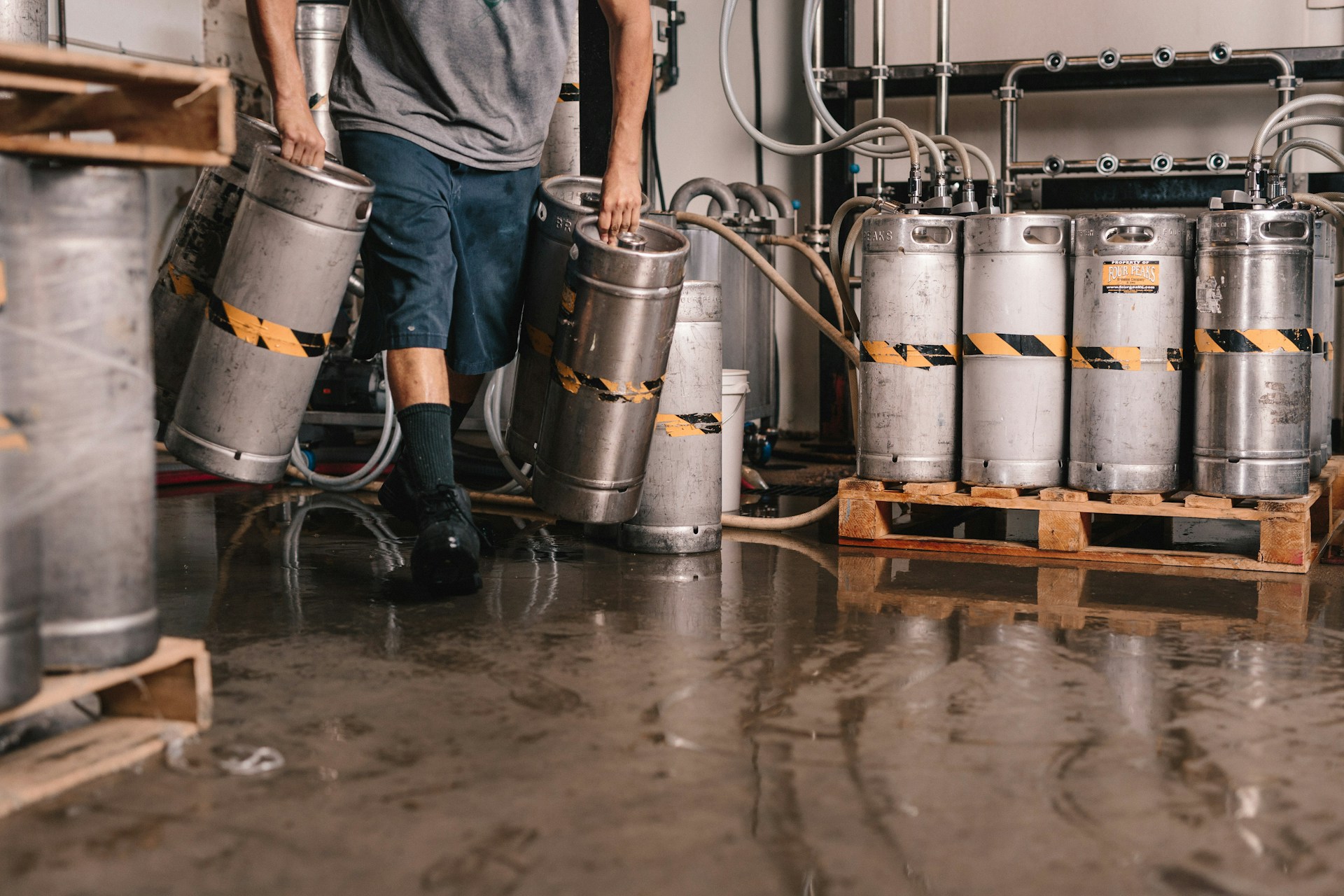In recent years, the craft beer industry has seen tremendous growth. Many restaurant owners are considering diversifying their businesses by setting up small-scale in-house breweries. Such a venture not only provides patrons with exclusive craft beer offerings, but also adds an additional source of income. This article will serve as a guide, discussing the crucial elements of starting a small-scale brewery, from drafting a business plan to obtaining necessary licenses and marketing your venture.
Crafting Your Business Plan
A detailed business plan is the backbone of any successful venture. It lays out your vision for the brewery, identifies potential challenges and outlines strategies for overcoming them. Your plan will include several critical components, such as identifying your target market, evaluating costs, planning for equipment purchase and installation, and designing a marketing strategy.
In the same genre : What are the essential tools and appliances for a raw food kitchen in a health-focused restaurant?
When identifying your target market, research local beer enthusiasts’ preferences and craft beer trends. Next, assess the costs involved in starting a brewery. Besides the initial investment, you should account for ongoing costs, such as purchasing ingredients, maintaining equipment, and marketing.
Your business plan should also detail your brewery layout and equipment needs. This will depend on your production capacity, available space, and the types of beer you plan to brew. Finally, outline your marketing strategy. Highlight how you’ll attract and retain customers by leveraging your unique selling point – your exclusive craft beer offerings.
This might interest you : How can touchless technology be implemented in a restaurant to improve hygiene and efficiency?
Understanding Brewery Costs
Understanding the costs involved is crucial when starting a brewery. The initial investment often includes the purchase of brewing equipment, renovation or adaptation of your current restaurant premises, and raw materials for beer production like malt, hops, and yeast. Additionally, you’ll need to budget for ongoing costs such as utilities, maintenance, insurance and marketing.
When it comes to brewing equipment, quality is vital. High-quality equipment may have a higher upfront cost, but it will save you time and money in the long run through increased efficiency, reduced maintenance and improved beer quality.
Acquiring Brewing Equipment
Selecting and purchasing brewing equipment is a significant step in setting up your brewery. Your equipment will depend on the scale of your operations and the types of craft beer you plan to brew. Basic brewing equipment includes brewing vessels, fermentation tanks, cooling systems, and quality control equipment.
When purchasing brewing equipment, consider your future plans for your brewery. If you foresee a significant increase in demand, it may be worthwhile to invest in larger or more advanced equipment that can accommodate growth. Also, ensure that your equipment supplier offers good after-sales service, as this will be crucial for troubleshooting and maintenance.
Obtaining Necessary Licenses
Before you start brewing, you will need to obtain the necessary licenses and permits. These will vary depending on your location, but generally include a brewing license, business license, and health and safety permits. Navigating the licensing process can be complex and time-consuming, so it’s advisable to seek help from an experienced consultant or attorney.
Maintain compliance with local regulations by ensuring your facilities and brewing practices meet health and safety standards. Expect inspections from health authorities and prepare by implementing proper sanitation procedures and maintaining detailed records of your brewing processes.
Marketing Your Brewery
Marketing is crucial for attracting and retaining customers. Your marketing strategy should highlight your unique selling points, such as your exclusive craft beer offerings, to distinguish your brewery from competitors. Utilize social media, your restaurant’s website, and traditional marketing methods like print ads and events to reach your target audience.
Establish relationships with your customers by offering brewery tours or beer tasting events. Collaborate with local businesses and participate in local events to increase your visibility in the community. Remember, word-of-mouth is a powerful tool in the craft beer industry, so focus on providing a high-quality product and exceptional customer experience.
Starting a small-scale brewery in your restaurant can be a significant undertaking, but with careful planning, it can be a rewarding addition to your business. Apart from providing an additional source of income, it can enhance your customers’ dining experience and set your restaurant apart. By crafting a comprehensive business plan, understanding costs, acquiring quality brewing equipment, obtaining necessary licenses, and implementing a robust marketing strategy, you can successfully set up and run a small-scale brewery in your restaurant.
Staff Training and Brewery Management
The success of your craft brewery heavily relies on the skills of your team. You will need staff who understand the brewing process and can operate the brewing equipment efficiently and safely. Your team should also be trained in quality control to ensure that each batch of beer meets your quality standards. Training can be sourced through local brewing schools or experienced brewers in the craft beer industry.
Effective brewery management is essential in running your craft brewery. This includes managing raw materials inventory, scheduling brew days, maintaining equipment, and ensuring health and safety standards are adhered to. Implementing a brewery management system can help streamline these tasks, enabling you to oversee all operations from a single platform.
Additionally, as part of your brewery management, regular maintenance of your brewery equipment will help prolong its lifespan and ensure consistent beer quality. This should include routine cleaning and sanitization to prevent contamination. It is also crucial to establish a relationship with your equipment supplier for regular checks and maintenance.
The Importance of Quality Control
Quality control is vital in the craft beer business. Your customers will expect a consistent, high-quality product. Hence, it’s important to implement strict quality control procedures. This should include regular testing of your beer for attributes such as color, taste, and alcohol content.
Investing in quality control equipment, like a beer testing lab, can help you maintain the highest standards. This lab will allow you to conduct tests like yeast cell counts, gravity measurements, and microbiological testing. Remember, maintaining the quality of your craft beer offerings is crucial for retaining your customers and building a strong reputation.
Opening a brewery in your restaurant is a significant venture that requires careful planning, a clear vision, and a dedicated team. With the right business plan, a thorough understanding of the costs involved, quality brewing equipment, necessary licenses, effective marketing strategies, and a focus on quality control and brewery management, you can create a successful craft beer business.
The journey of starting your own brewery may be challenging, but it also brings the opportunity to share your unique craft beer offerings with your customers and the wider community. It can significantly enhance your restaurant’s appeal and provide a substantial new revenue stream.
Stay dedicated and patient, and soon enough, your restaurant will be known not just for its food, but also for its exclusive, locally brewed craft beers. Ultimately, your restaurant’s small-scale brewery could become the toast of the town!






